-
Modem detected but can not use it...
Knoppix 3.6 detected my modem but I can not use it to connect. In the command it says:
Opening device
Error RemoveLock
What does this mean?
Is my modem lock? How can I unlocked?
I have tried it from root command and from user command and I get the same error.
I have tried kppp, tab modem, query which should call the modem and it gives a message that the modem is busy.
I tried the mini terminal to set commands to the modem. It also says that the modem is busy. When I try to reset it, it says modem ready, but when I try to send command to modem, nothing happens.
Is there a way to check why the modem is detected but I can not use it? In windows, I can go to the control panel and click on the modem. Is there something similar to this in linux? Thanks.
-
Senior Member
registered user
Is your modem an internal pci card modem? Hopefully it's not a winmodem.
Anyway I think it's probably best to delete whatever you have set up in kppp.
Then open a terminal window su to root and type "pppconfig"
Follow the program's set up guidence and save the changes. Then you can re-set up your kppp.
If you still can't connect after that enable the debug in kppp and copy and paste the errors.
Good luck
-
I forgot to do this last time. Here is the lspci -v output:
0000:00:00.0 Host bridge: Intel Corp. 440BX/ZX/DX - 82443BX/ZX/DX Host bridge (rev 02)
Flags: bus master, medium devsel, latency 64
Memory at 44000000 (32-bit, prefetchable) [size=64M]
Capabilities: [a0] AGP version 1.0
0000:00:01.0 PCI bridge: Intel Corp. 440BX/ZX/DX - 82443BX/ZX/DX AGP bridge (rev 02) (prog-if 00 [Normal decode])
Flags: bus master, 66MHz, medium devsel, latency 64
Bus: primary=00, secondary=01, subordinate=01, sec-latency=64
I/O behind bridge: 00001000-00001fff
Memory behind bridge: 40000000-410fffff
0000:00:04.0 Serial controller: Rockwell International HCF 56k Data/Fax Modem (rev 01) (prog-if 00 [8250])
Subsystem: Compaq Computer Corporation 229-DF Zephyr
Flags: bus master, medium devsel, latency 64, IRQ 3
Memory at 41100000 (32-bit, non-prefetchable) [size=64K]
Capabilities: [40] Power Management version 1
0000:00:05.0 Ethernet controller: Digital Equipment Corporation DECchip 21142/43 (rev 41)
Subsystem: Compaq Computer Corporation: Unknown device b0bb
Flags: bus master, medium devsel, latency 66, IRQ 11
I/O ports at 2400 [disabled] [size=128]
Memory at 41200000 (32-bit, non-prefetchable) [disabled] [size=1K]
Expansion ROM at <unassigned> [disabled] [size=256K]
Capabilities: [dc] Power Management version 1
0000:00:06.0 Multimedia audio controller: ESS Technology ES1968 Maestro 2
Subsystem: Compaq Computer Corporation: Unknown device b0b8
Flags: bus master, medium devsel, latency 64, IRQ 5
I/O ports at 2000 [size=256]
Capabilities: [c0] Power Management version 1
0000:00:07.0 FireWire (IEEE 1394): Adaptec AIC-5800 (rev 10) (prog-if 00 [Generic])
Subsystem: Compaq Computer Corporation: Unknown device b0cb
Flags: bus master, medium devsel, latency 66, IRQ 11
Memory at 41300000 (32-bit, non-prefetchable) [size=512]
Expansion ROM at <unassigned> [disabled] [size=64K]
0000:00:14.0 ISA bridge: Intel Corp. 82371AB/EB/MB PIIX4 ISA (rev 02)
Flags: bus master, medium devsel, latency 0
0000:00:14.1 IDE interface: Intel Corp. 82371AB/EB/MB PIIX4 IDE (rev 01) (prog-if 80 [Master])
Flags: bus master, medium devsel, latency 64
I/O ports at 24a0 [size=16]
0000:00:14.2 USB Controller: Intel Corp. 82371AB/EB/MB PIIX4 USB (rev 01) (prog-if 00 [UHCI])
Flags: bus master, medium devsel, latency 64, IRQ 5
I/O ports at 2480 [size=32]
0000:00:14.3 Bridge: Intel Corp. 82371AB/EB/MB PIIX4 ACPI (rev 02)
Flags: medium devsel, IRQ 9
0000:01:00.0 VGA compatible controller: ATI Technologies Inc 3D Rage LT Pro AGP-133 (rev dc) (prog-if 00 [VGA])
Subsystem: ATI Technologies Inc Rage LT Pro AGP 2X
Flags: bus master, stepping, medium devsel, latency 66, IRQ 5
Memory at 40000000 (32-bit, non-prefetchable) [size=16M]
I/O ports at 1000 [size=256]
Memory at 41000000 (32-bit, non-prefetchable) [size=4K]
Expansion ROM at <unassigned> [disabled] [size=128K]
Capabilities: [50] AGP version 1.0
Capabilities: [5c] Power Management version 1
Here is the error that I get with kppp:
Opener: received OpenDevice
error opening modem device !
Opener: received RemoveLock
The modem is an internal pci.
I will try pppconfig later today because I do not have the time right now. I will let you know how it goes. Thanks.
-
Senior Member
registered user
The modem output looks good.
I believe the error message from kppp just means that
the ppp files in /etc haven't been configured, or are not there.
pppconfig should do the trick.
And you will need to know the device address of the modem for kppp
the pppconfig program may provide it for you. With a pci slot modem it depends
on what slot it is set in. something like /dev/ttySX with "X" being a specific #
that defines the pci location.
Good luck-let us know how you make out.
-
I tried pppconfig. It did not fix the problem. When it ask for auto find of modem I said yes and it did not find a modem. It said that it was probing ttyS0 and than can back with Manuel preselect, which the text said that it preselect it because it could not find a modem.
In Windows, my modem is on COM2, which should be ttyS1. I enter that manuelly into the pppconfig and it still did not work.
I try the command dmesg. I am new to linux so I am not sure what all of these means but it looks as if Linux found only on port ttyS0 and did not find the ttyS1, where my modem is. Is my understanding correct about this? The output is down below.
I try command setserial /dev/ttyS1. I got an output that it does not know what the UART is. What is the UART anyway?
Here is the output of setserial:
/dev/ttyS1 UART: unknown, Port: 0x02f8, IRQ:3
Here is the output of dmesg:
Linux version 2.4.27 (root@Koffer) (gcc version 2.95.4 20011002 (Debian prerelease)) #2 SMP Mo Aug 9 00:39:37 CEST 2004
BIOS-provided physical RAM map:
BIOS-e820: 0000000000000000 - 000000000009fc00 (usable)
BIOS-e820: 000000000009fc00 - 00000000000a0000 (reserved)
BIOS-e820: 00000000000f0000 - 0000000000100000 (reserved)
BIOS-e820: 0000000000100000 - 0000000008000000 (usable)
BIOS-e820: 00000000fffe0000 - 0000000100000000 (reserved)
0MB HIGHMEM available.
128MB LOWMEM available.
On node 0 totalpages: 32768
zone(0): 4096 pages.
zone(1): 28672 pages.
zone(2): 0 pages.
DMI not present.
ACPI: RSDP (v000 COMPAQ ) @ 0x000e8010
ACPI: RSDT (v001 COMPAQ THUNDER 0x00000001 0x00000000) @ 0x000e8080
ACPI: FADT (v001 COMPAQ THUNDER 0x00000001 0x00000000) @ 0x000e80cc
ACPI: SSDT (v001 COMPAQ THUNDTBL 0x00000001 MSFT 0x01000007) @ 0x000e8177
ACPI: DSDT (v001 COMPAQ DSDTTBL 0x00000001 MSFT 0x01000007) @ 0x00000000
Kernel command line: ramdisk_size=100000 init=/etc/init lang=us apm=power-off vga=791 initrd=minirt24.gz nomce quiet BOOT_IMAGE=knoppix BOOT_IMAGE=linux24
Local APIC disabled by BIOS -- reenabling.
Found and enabled local APIC!
Initializing CPU#0
Detected 448.055 MHz processor.
Console: colour dummy device 80x25
Calibrating delay loop... 894.56 BogoMIPS
Memory: 125764k/131072k available (1406k kernel code, 4920k reserved, 574k data, 144k init, 0k highmem)
Dentry cache hash table entries: 16384 (order: 5, 131072 bytes)
Inode cache hash table entries: 8192 (order: 4, 65536 bytes)
Mount cache hash table entries: 512 (order: 0, 4096 bytes)
Buffer cache hash table entries: 8192 (order: 3, 32768 bytes)
Page-cache hash table entries: 32768 (order: 5, 131072 bytes)
CPU: L1 I cache: 16K, L1 D cache: 16K
CPU: L2 cache: 512K
CPU: After generic, caps: 0183fbff 00000000 00000000 00000000
CPU: Common caps: 0183fbff 00000000 00000000 00000000
Enabling fast FPU save and restore... done.
Checking 'hlt' instruction... OK.
Checking for popad bug... OK.
POSIX conformance testing by UNIFIX
mtrr: v1.40 (20010327) Richard Gooch (rgooch@atnf.csiro.au)
mtrr: detected mtrr type: Intel
CPU: L1 I cache: 16K, L1 D cache: 16K
CPU: L2 cache: 512K
CPU: After generic, caps: 0183fbff 00000000 00000000 00000000
CPU: Common caps: 0183fbff 00000000 00000000 00000000
CPU0: Intel Pentium II (Deschutes) stepping 02
per-CPU timeslice cutoff: 1461.18 usecs.
SMP motherboard not detected.
enabled ExtINT on CPU#0
ESR value before enabling vector: 00000000
ESR value after enabling vector: 00000000
Using local APIC timer interrupts.
calibrating APIC timer ...
..... CPU clock speed is 448.0670 MHz.
..... host bus clock speed is 99.5702 MHz.
cpu: 0, clocks: 995702, slice: 497851
CPU0<T0:995696,T1:497840,D:5,S:497851,C:995702>
Waiting on wait_init_idle (map = 0x0)
All processors have done init_idle
ACPI: Subsystem revision 20040326
PCI: PCI BIOS revision 2.10 entry at 0xfa124, last bus=1
PCI: Using configuration type 1
ACPI: IRQ9 SCI: Edge set to Level Trigger.
schedule_task(): keventd has not started
ACPI: Interpreter enabled
ACPI: Using PIC for interrupt routing
ACPI: System [ACPI] (supports S0 S1 S4 S5)
ACPI: PCI Interrupt Link [LNKA] (IRQs 3 4 *5 6 7 10 11)
ACPI: PCI Interrupt Link [LNKB] (IRQs 3 4 5 6 7 10 *11)
ACPI: PCI Interrupt Link [LNKC] (IRQs *3 4 5 6 7 10 11)
ACPI: PCI Interrupt Link [LNKD] (IRQs 3 4 5 6 7 10 *11)
ACPI: PCI Root Bridge [PCI0] (00:00)
PCI: Probing PCI hardware (bus 00)
ACPI: PCI Interrupt Routing Table [\_SB_.PCI0._PRT]
PCI: Probing PCI hardware
ACPI: PCI Interrupt Link [LNKC] enabled at IRQ 3
ACPI: PCI Interrupt Link [LNKD] enabled at IRQ 11
ACPI: PCI Interrupt Link [LNKA] enabled at IRQ 5
ACPI: PCI Interrupt Link [LNKB] enabled at IRQ 11
PCI: Using ACPI for IRQ routing
Limiting direct PCI/PCI transfers.
isapnp: Scanning for PnP cards...
isapnp: No Plug & Play device found
Linux NET4.0 for Linux 2.4
Based upon Swansea University Computer Society NET3.039
Initializing RT netlink socket
Starting kswapd
VFS: Disk quotas vdquot_6.5.1
vesafb: framebuffer at 0x40000000, mapped to 0xc880d000, size 3072k
vesafb: mode is 1024x768x16, linelength=2048, pages=1
vesafb: protected mode interface info at c000:4bd4
vesafb: scrolling: redraw
vesafb: directcolor: size=0:5:6:5, shift=0:11:5:0
Console: switching to colour frame buffer device 128x48
fb0: VESA VGA frame buffer device
pty: 256 Unix98 ptys configured
Floppy drive(s): fd0 is 1.44M
FDC 0 is a post-1991 82077
RAMDISK driver initialized: 16 RAM disks of 100000K size 1024 blocksize
Uniform Multi-Platform E-IDE driver Revision: 7.00beta4-2.4
ide: Assuming 33MHz system bus speed for PIO modes; override with idebus=xx
PIIX4: IDE controller at PCI slot 00:14.1
PIIX4: chipset revision 1
PIIX4: not 100% native mode: will probe irqs later
ide0: BM-DMA at 0x24a0-0x24a7, BIOS settings: hda MA, hdb
MA, hdb io
io
ide1: BM-DMA at 0x24a8-0x24af, BIOS settings: hdc MA, hdd
MA, hdd io
io
hda: QUANTUM Bigfoot TX12.0AT, ATA DISK drive
hdc: COMPAQ DVD-ROM GD-2500, ATAPI CD/DVD-ROM drive
ide0 at 0x1f0-0x1f7,0x3f6 on irq 14
ide1 at 0x170-0x177,0x376 on irq 15
hda: attached ide-disk driver.
hda: 23547888 sectors (12057 MB) w/69KiB Cache, CHS=1557/240/63
Partition check:
hda: hda1
ide: late registration of driver.
SCSI subsystem driver Revision: 1.00
libata version 1.02 loaded.
kmod: failed to exec /sbin/modprobe -s -k scsi_hostadapter, errno = 2
kmod: failed to exec /sbin/modprobe -s -k scsi_hostadapter, errno = 2
Initializing Cryptographic API
NET4: Linux TCP/IP 1.0 for NET4.0
IP Protocols: ICMP, UDP, TCP, IGMP
IP: routing cache hash table of 1024 buckets, 8Kbytes
TCP: Hash tables configured (established 8192 bind 8192)
NET4: Unix domain sockets 1.0/SMP for Linux NET4.0.
RAMDISK: Compressed image found at block 0
Freeing initrd memory: 781k freed
VFS: Mounted root (ext2 filesystem).
hdc: attached ide-scsi driver.
scsi0 : SCSI host adapter emulation for IDE ATAPI devices
Vendor: COMPAQ Model: DVD-ROM GD-2500 Rev: 0011
Type: CD-ROM ANSI SCSI revision: 02
Attached scsi CD-ROM sr0 at scsi0, channel 0, id 0, lun 0
sr0: scsi3-mmc drive: 10x/24x cd/rw xa/form2 cdda tray
Uniform CD-ROM driver Revision: 3.12
NCR53c406a: no available ports found
aec671x_detect:
scsi: <fdomain> Detection failed (no card)
GDT: Storage RAID Controller Driver. Version: 2.05
GDT: Found 0 PCI Storage RAID Controllers
megaraid: v1.18k (Release Date: Thu Aug 28 10:05:11 EDT 2003)
megaraid: no BIOS enabled.
DC390: 0 adapters found
Failed initialization of WD-7000 SCSI card!
Guestimating sector 23546549 for superblock
driver for Silicon Image(tm) Medley(tm) hardware version 0.0.1: No raid array found
Medley RAID: No usable RAID sets found
Promise Fasttrak(tm) Softwareraid driver 0.03beta: No raid array found
usb.c: registered new driver usbdevfs
usb.c: registered new driver hub
usb-uhci.c: $Revision: 1.275 $ time 00:50:50 Aug 9 2004
usb-uhci.c: High bandwidth mode enabled
usb-uhci.c: USB UHCI at I/O 0x2480, IRQ 5
usb-uhci.c: Detected 2 ports
usb.c: new USB bus registered, assigned bus number 1
hub.c: USB hub found
hub.c: 2 ports detected
usb-uhci.c: v1.275:USB Universal Host Controller Interface driver
Initializing USB Mass Storage driver...
usb.c: registered new driver usb-storage
USB Mass Storage support registered.
blk: queue c03661a0, I/O limit 4095Mb (mask 0xffffffff)
ISO 9660 Extensions: Microsoft Joliet Level 3
ISO 9660 Extensions: RRIP_1991A
cloop: Initializing cloop v2.01
cloop: loaded (max 8 devices)
cloop: /cdrom/KNOPPIX/KNOPPIX: 30369 blocks, 65536 bytes/block, largest block is 65552 bytes.
ISO 9660 Extensions: RRIP_1991A
Freeing unused kernel memory: 144k freed
Real Time Clock Driver v1.10f
ACPI: Power Button (FF) [PWRF]
ACPI: Lid Switch [LID]
ACPI: Processor [CPU0] (supports C1 C2)
Linux Kernel Card Services 3.1.22
options: [pci] [cardbus] [pm]
Intel ISA PCIC probe: not found.
Databook TCIC-2 PCMCIA probe: not found.
usbdevfs: remount parameter error
Serial driver version 5.05c (2001-07-08 ) with MANY_PORTS SHARE_IRQ SERIAL_PCI ISAPNP enabled
ttyS00 at 0x03f8 (irq = 4) is a 16550A
PCI: Enabling device 00:06.0 (0004 -> 0005)
maestro: Configuring ESS Maestro 2 found at IO 0x2000 IRQ 5
maestro: subvendor id: 0xb0b80e11
maestro: not attempting power management.
maestro: AC97 Codec detected: v: 0x414b4d00 caps: 0x0 pwr: 0xf
maestro: 1 channels configured.
maestro: version 0.15 time 00:49:39 Aug 9 2004
Linux agpgart interface v0.99 (c) Jeff Hartmann
agpgart: Maximum main memory to use for agp memory: 96M
agpgart: Detected Intel 440BX chipset
agpgart: AGP aperture is 64M @ 0x44000000
CSLIP: code copyright 1989 Regents of the University of California
PPP generic driver version 2.4.2
-
Senior Member
registered user
I didn't get your full reply. For some odd reason the message actually went
outside the boarder/box. Also the output of lspci -v is no longer
shown. I wonder if there is some problem with the list here?
Anyway you need to enter your modem in manually and I recommend using pppconfig
because that will set up your ppp files correctly.
Wjhen pppconfig asks just select manually select and then enter the /dev/ttyS? that you have for your modem.
If you don't know the right # to enter you can guess and just keep trying until it works.
If I remember correctly it seems like your modem was /dev/ttyS4
but it could have been 3. Also the "S" is uppercase that's important!there
Good luck
-
The website is being update and sometimes it happens that the message goes out of the box. I found a quick solution if
that happens again. Just click on the quote link and you can see the whole message corretly. This is how I got around it
when it happen to me.
I have tried ttyS1 thru 4 and nothing happen. In Windows, my modem is on COM 2, which should be ttyS1 in Linux. I found
that the UART in Windows for my modem was UART: INS 8250. I called the command info setserial and this UART (INS
8250) is not listed in the info page so I am not sure if I should set the UART as INS 8250 or leave it as
unknown. I am not sure if this would solve my problem. But I am think in everyway possible to try to get it to work.
Do you know of a command that could list all the ports that Linux can detect on my system? Because I think that linux is not
detecting my ports correctly and I would like to see what ports it has found on my system.
-
Senior Member
registered user
Try to add a needed module with modconf as root. That might help.
-
Senior Member
registered user

Originally Posted by
kn2user
I have tried ttyS1 thru 4 and nothing happen. In Windows, my modem is on COM 2, which should be ttyS1 in Linux. I found
that the UART in Windows for my modem was UART: INS 8250. I called the command info setserial and this UART (INS
8250) is not listed in the info page so I am not sure if I should set the UART as INS 8250 or leave it as
unknown. I am not sure if this would solve my problem. But I am think in everyway possible to try to get it to work.
Do you know of a command that could list all the ports that Linux can detect on my system? Because I think that linux is not
detecting my ports correctly and I would like to see what ports it has found on my system.
When you say nothing happens what exactly is kppp doing-what is the response from kppp when you attempt to connect?
You could also try commands at the terminal e.g "pon yourisp.com" ( replace yourisp with what you have created as an account name using pppconfig.)
"pon" dials your modem and "poff" hangs up the connection.
You can also change modem settings and most other communication varibles using "minicom -s" at a terminal.
As far as a command that would list all your "ports" since your modem is a pci card (right?) then lspci -v gives you the pci card specs.
knoppix has a GUI that might do what you want Kmenu>System>Info Center.
Hope this helps I had a lot of modem issues when I installed debian "woody" a few years back which is how I learned some of this stuff.
-
Kppp, after running pppconfig, gives me this error and than closes:
Opener: received OpenDevice
error opening modem device !
Opener: received RemoveLock
I know about lspci -v but I do not understand the output fully because I am new to linux. Like how can you find out what ttyS# is for the port.
I want an output that says something like this:
Linux has detected these ports:
ttyS0 no hardware
ttyS1 modem found
Is there a command like this?
eon, you sayed that my modem is ttyS3 or ttyS4 how did you find this? In windows, my modem is on com2, which should be ttyS1 in linux. Should windows and linux have the modem on the same port or will it be different?
I will try pon and minicom tommorrow since I have a paper to write today.
rrfish72, what does the command modconf do? I am new to linux so what do I have to do to add a module. What module should I add?
Similar Threads
-
By woestyn in forum Hardware & Booting
Replies: 1
Last Post: 04-01-2006, 10:21 AM
-
By Kowood in forum Hardware & Booting
Replies: 0
Last Post: 05-08-2005, 03:42 AM
-
By eeoam in forum Hardware & Booting
Replies: 0
Last Post: 08-03-2004, 11:48 PM
-
By maneeshkumar in forum Hardware & Booting
Replies: 2
Last Post: 04-09-2003, 04:18 PM
-
By Nesser in forum Hardware & Booting
Replies: 3
Last Post: 03-29-2003, 12:43 AM
 Posting Permissions
Posting Permissions
- You may not post new threads
- You may not post replies
- You may not post attachments
- You may not edit your posts
-
Forum Rules

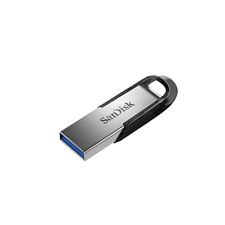
SanDisk 128GB Ultra Flair USB 3.0 Flash Drive - SDCZ73-128G-G46
$12.99
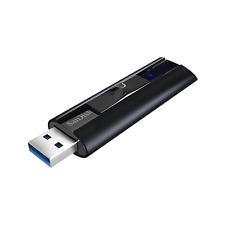
SanDisk 128GB Extreme PRO USB 3.2 Solid State Flash Drive - SDCZ880-128G-A46
$36.99

512GB USB Flash Drive External Storage Memory Stick For iPhone iPad Android
$17.59
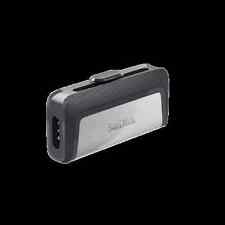
SanDisk 32GB Ultra Dual Drive USB Type-C, USB 3.1 Flash Drive - SDDDC2-032G-G46
$10.99
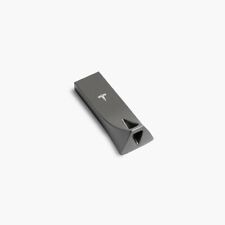
New TESLA OEM Model S,3,X,Y USB Flash Drive for Dashcam & Sentry Mode 128GB
$18.99

Sandisk 16GB 32GB 64GB 128GB Cruzer Blade Flash Drive Memory Stick USB Lot Pack
$4.99
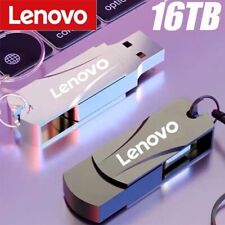
Lenovo USB 16TB 3.0 USB Flash Drive Thumb Disk Silver Transfer Metal Memory
$24.99

USB Flash Drive Case Soft Material Thumb Drive Holder Case, USB Drive Holder Org
$8.38

USB Flash Drive Memory Stick Pendrive Thumb Drive 4GB, 8GB, 32GB, 64GB 128GB LOT
$249.37

Lot USB Flash Drive Memory Stick Pendrive Thumb Drive 2GB,4GB, 8G, 32G, 64G 128G
$414.85



 Reply With Quote
Reply With Quote










